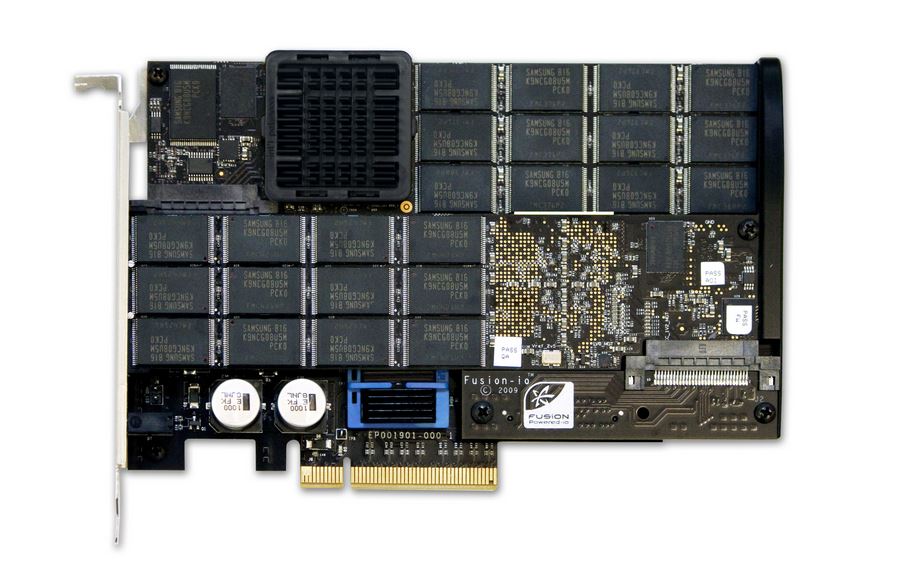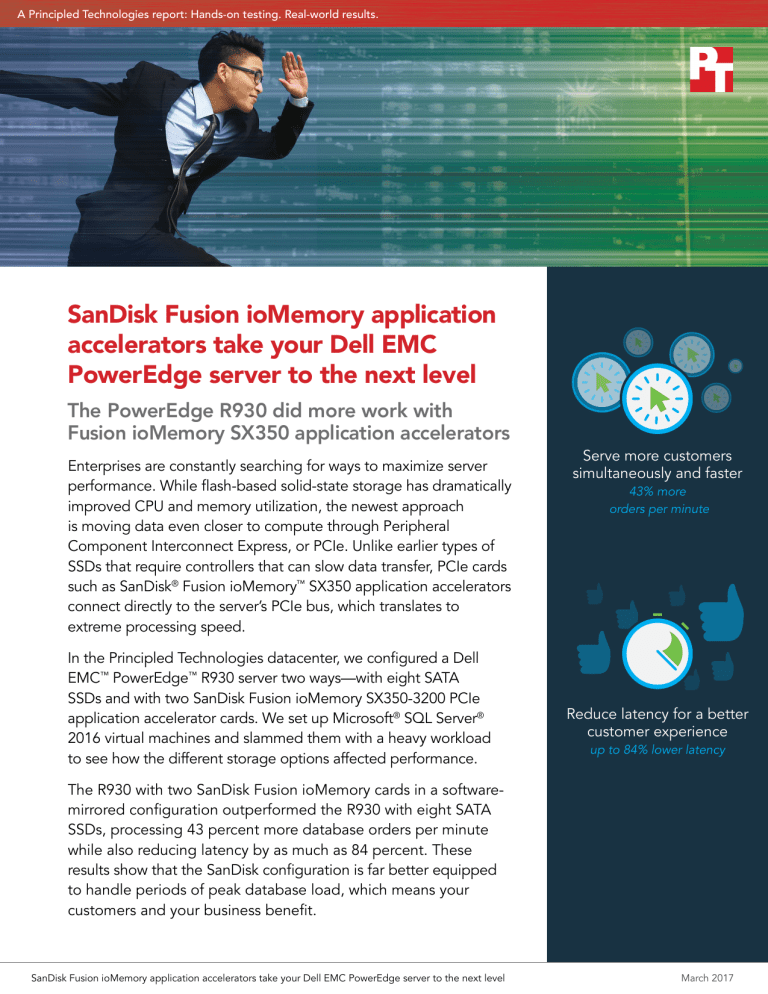Dell Fusion Io Drivers
| Please note that this article / this category refers either on older software / hardware components or is no longer maintained for other reasons. This page is no longer updated and is purely for reference purposes still here in the archive available. |
|---|
We would like to show you a description here but the site won’t allow us. Explore Dell business technology solutions for computers, servers, storage and computer accessories. Discover technology that can improve your business. What driver is needed to use the Fusion-io ioDrive with. We will fully support the underlying installation on which these drivers. Nov 13, 2017 Hi, as FusionIO is still in the works for delivering ESXi 6 drivers - my question - did anybody in the community upgraded an ESXi 5.x with working.
Fusion-io ioDrives like SSDs offer flash memory for the permanent storage of data. The memory chips are directly on an x4 PCIe card and therefore, unlike SSDs, do not have SATA, or SAS connections. Through its own driver read and write access are addressed directly on the card (ioMemory VSL, Virtual Storage Layer).[1][2] This enables a very high I/O performance, which is rarely achieved with conventional RAID systems. Booting directly from the ioDrive is not possible due to the necessary driver. They are significantly more expensive compared to normal ioDrive SSDs, but offer higher performance. They are therefore especially suitable for I/O-intensive applications that require a high number of possible I/O operations per second (IOPS).

Properties
- Capacity: 160 GB (SLC), 320 GB (MLC), 640 GB (MLC)[3]
- Supported Operating Systems: 64-Bit Microsoft Server 2003/2008, 64-Bit Microsoft Windows XP/Vista/Win7, RHEL 4/5, SLES 10/11, OEL v4/v5[4], in der Within the list of supported Linux core versions there is also a list including Debian and Ubuntu cores.
- Cache: Fusion-io ioDrive does not use DRAM cache such as in hard drives or SSDs. Therefore, cache content will not be lost in case of a power failure. [5]
- CPU: the ioDrive does not have its own CPU.[6]
- Monitoring: by fio-snmp-agentx SNMP Agent[7]
Dell Fusion Io Drivers Install

References
- ↑http://www.fusionio.com/press/Fusion-io-Continues-Its-Innovation-Leadership-by-Introducing-First-Flash-Optimized-Subsystem/
- ↑http://hothardware.com/News/Fusionio-ioMemory-VSL-Treats-Flash-Storage-As-A-New-Memory-Tier/
- ↑http://www.fusionio.com/products/iodrive/
- ↑ioDrive Datasheet
- ↑http://community.fusionio.com/forums/t/97.aspx
- ↑http://community.fusionio.com/forums/t/46.aspx
- ↑http://kb.fusionio.com/KB/a67/setting-up-snmp.aspx?KBSearchID=4801

Additional Information
I was working on a Mongo database server that was going to be running a Fusion-io/Sandisk ioDrive2 card for wicked speed, and also needed to do on disk encryption…fun task. I am using CentOS7 and ioDrive2 drivers version 3.2.10. I wanted auto mounting of the space, so I can have the services start on reboot (after putting in the LUKS password).
1. download drivers from https://link.sandisk.com/Home/SoftwareDownload (may need to make account first) (in this case v 3.2.10)
2. # tar xvf fusionio-files-*.tar
3. # uname -r (now check the binary available does it match your kernel? – mine did not)
4. # cd fusionio-files-*/ioDrive2/Linux_centos-7/3.2.10/Software Source
5. # rpmbuild –rebuild iomemory-vsl-3.2.10.1509-1.0.el7.centos.src.rpm
6. # cd ~/rpmbuild/RPMS/x86_64/
7. # yum install iomemory-vsl-3.10.0*.rpm iomemory-vsl-config-3.10.0-*.rpm iomemory-vsl-source-3.2.10*.rpm
8. # cd ~/fusionio-files-*/ioDrive2/Linux_centos-7/3.2.10/Utilities/
9. # yum install fio*.rpm
10. # yum install lib*.rpm
11. # mkdir /var/lib/mongo
12. # modprobe iomemory-vsl
13. # dmesg (to vierify that the device was found)
**** now setup LUKS encryption ****

Dell Fusion Io Driver
14. # cryptsetup -y create iomongo /dev/fioa
15. # mkfs.xfs /dev/mapper/iomongo
16. # mount /dev/mapper/iomongo /var/lib/mongo
17. # vim /etc/crypttab
add the line:
iomongo /dev/fioa none
18. # vim /etc/sysconfig/iomemory-vsl
uncomment the following:
ENABLED=1
modify and add the mount points
MOUNTS=”/var/lib/mongo”
19. # reboot
(verify everything comes up – notice if you have other LUKS encrypted devices and you use the same password on all of them, you will only be asked once for a password and all your devices should work)